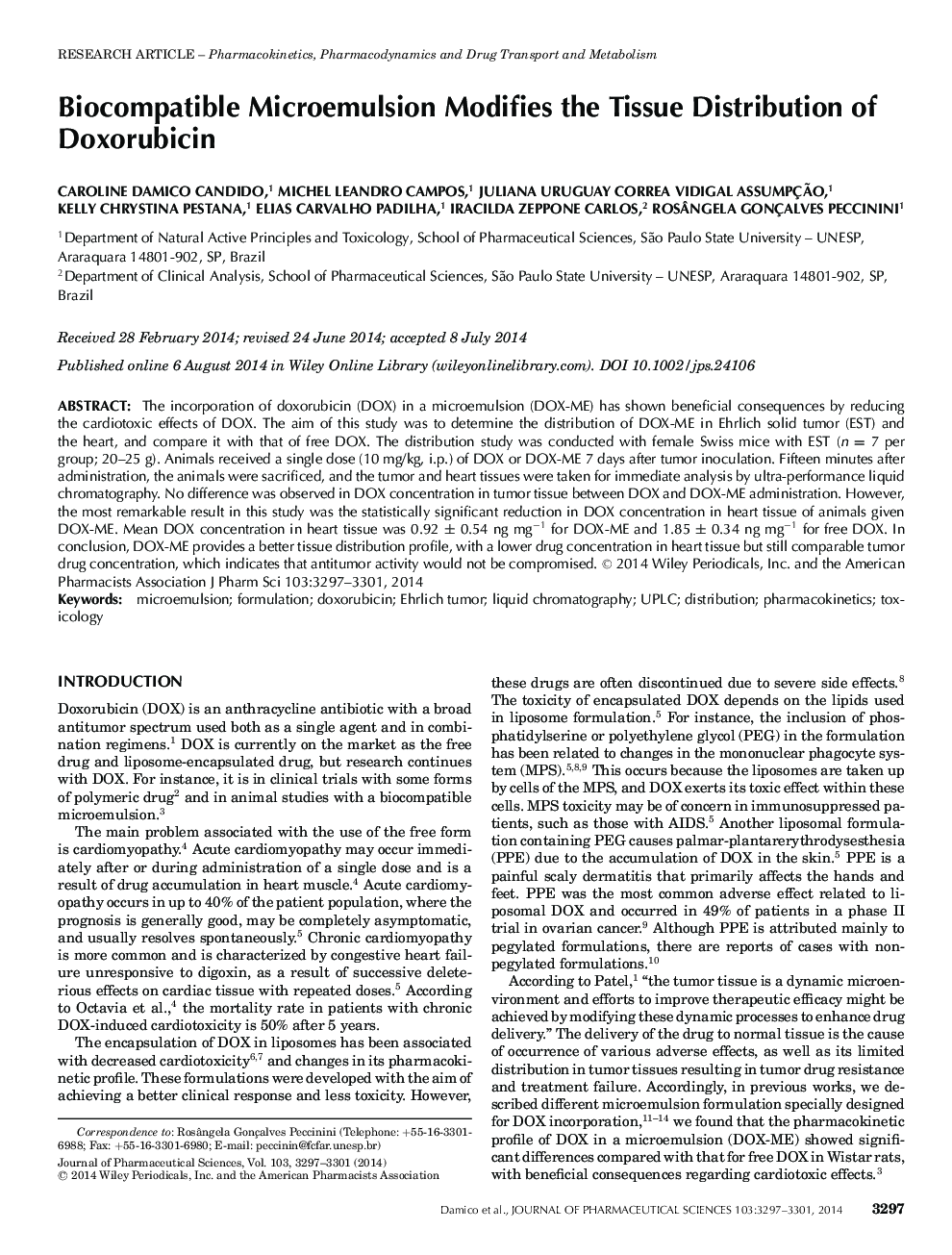| Article ID | Journal | Published Year | Pages | File Type |
|---|---|---|---|---|
| 2484682 | Journal of Pharmaceutical Sciences | 2014 | 5 Pages |
Abstract
The incorporation of doxorubicin (DOX) in a microemulsion (DOX-ME) has shown beneficial consequences by reducing the cardiotoxic effects of DOX. The aim of this study was to determine the distribution of DOX-ME in Ehrlich solid tumor (EST) and the heart, and compare it with that of free DOX. The distribution study was conducted with female Swiss mice with EST (n = 7 per group; 20-25 g). Animals received a single dose (10 mg/kg, i.p.) of DOX or DOX-ME 7 days after tumor inoculation. Fifteen minutes after administration, the animals were sacrificed, and the tumor and heart tissues were taken for immediate analysis by ultra-performance liquid chromatography. No difference was observed in DOX concentration in tumor tissue between DOX and DOX-ME administration. However, the most remarkable result in this study was the statistically significant reduction in DOX concentration in heart tissue of animals given DOX-ME. Mean DOX concentration in heart tissue was 0.92 ± 0.54 ng mgâ1 for DOX-ME and 1.85 ± 0.34 ng mgâ1 for free DOX. In conclusion, DOX-ME provides a better tissue distribution profile, with a lower drug concentration in heart tissue but still comparable tumor drug concentration, which indicates that antitumor activity would not be compromised. © 2014 Wiley Periodicals, Inc. and the American Pharmacists Association J Pharm Sci 103:3297-3301, 2014
Keywords
Related Topics
Health Sciences
Pharmacology, Toxicology and Pharmaceutical Science
Drug Discovery
Authors
Caroline Damico Candido, Michel Leandro Campos, Juliana Uruguay Correa Vidigal Assumpção, Kelly Chrystina Pestana, Elias Carvalho Padilha, Iracilda Zeppone Carlos, Rosângela Gonçalves Peccinini,
